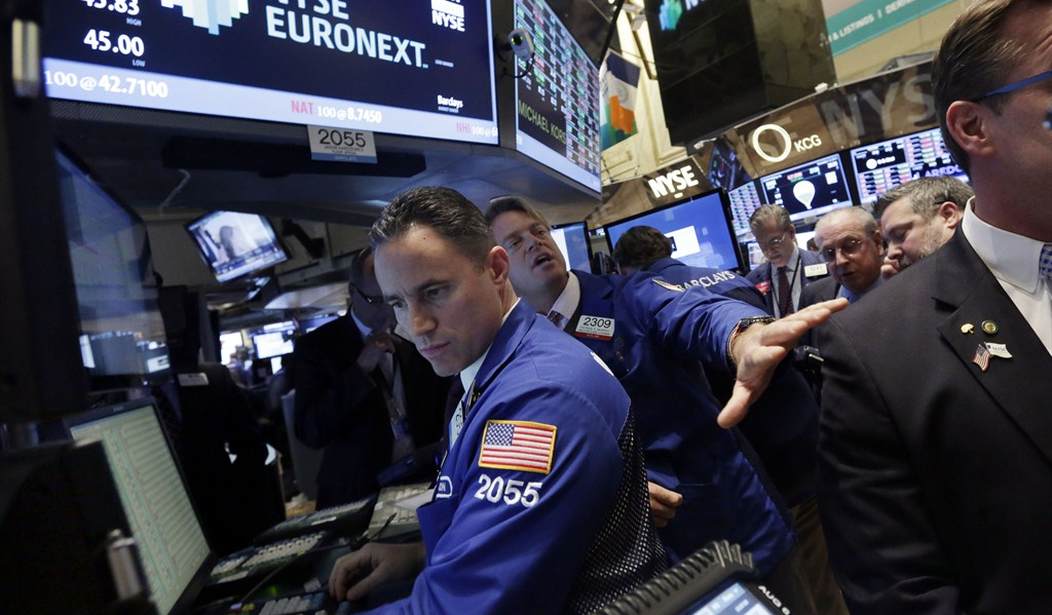Clearly, sustained low inflation implies less uncertainty about the future, and lower risk premiums imply higher prices of stocks and other earning assets. We can see that in the inverse relationship exhibited by price/earnings ratios and the rate of inflation in the past. But how do we know when irrational exuberance has unduly escalated asset values, which then become subject to unexpected and prolonged contractions as they have in Japan over the past decade?
Alan Greenspan
The market is gyrating a bit, and that's natural for the kind of run experienced over the past five years, but the growing chorus of bubbles and crashes make normalcy more unnerving. This harkens back to the famous (or infamous) irrational exuberance comments from Alan Greenspan. Back in December 1996, the Federal Reserve chairman uttered this statement that sent the market lower for a moment before those same animal spirits he was trying to corral went back into a buying frenzy.
When Greenspan made his observation, the Dow Jones Industrial average was 6,400, up more than 170% from the start of that bull market back in October 11, 1990 (the index was up 269% from the low of Black Monday 1987).
The Hungry Bears
 By the time the rally ran its course in March 2000, the Dow had climbed to 11,723, or 392% in a single decade. The rally proved a few things including that true insanity in the stock market reaches unfathomable levels well beyond anything we're seeing today. In fact, the craziness gets so perverse that 98% of naysayers either jump on the bandwagon or temper their frustration and fear. At this point, the bears are growling with confidence, but most are just guessing and nudging.
By the time the rally ran its course in March 2000, the Dow had climbed to 11,723, or 392% in a single decade. The rally proved a few things including that true insanity in the stock market reaches unfathomable levels well beyond anything we're seeing today. In fact, the craziness gets so perverse that 98% of naysayers either jump on the bandwagon or temper their frustration and fear. At this point, the bears are growling with confidence, but most are just guessing and nudging.
For many, it doesn't matter if the correction (long overdue) happens soon or months from now, they've positioned themselves to try to reclaim influence. For bears and shorts, it's always much better when they can jawbone a stock or even the broad market lower as timing has never been their specialty. In the meantime, most have missed the rally, and this is how they (A) try to make some money and (B) try to save face.
Recommended
As it stands, the group is more comical than frightening, even after such a massive rally makes the prediction of stocks coming down a no-brainer. The cataclysmic call seems poorly timed here. Heck, even when it was obvious markets were too giddy back in 1987, they only stalled momentarily after the Maestro himself (and certainly with no ax to grind) chimed in. Investors need to be careful of getting whipsawed here and not confuse a correction with a crash because when the first serious decline takes place in the market, these guys are going to go nuts.
Smarter Than Your Average Bear
It's fine for bears and Fed-haters to predict doom and gloom; that's what they do, and they're wrong until they run out of money or are eventually right (it's a cyclical thing after all), but what about the pros that are supposed to make you money? Hedge fund managers, also known as masters of the universe, have been woefully wrong on the market. In October, the Hennessee Hedge Fund Index climbed 1.4% against 4.5% for the S&P 500, and for the year, these Wall Street titans are up 9.9% versus 23.2% for the market.
These guys are, as Yogi bear would say, smarter than your average bear. The latter just can't help it, its like the story of the scorpion and the frog ... professional curmudgeons that can see the worst case scenario in the swirl of a double espresso. But these other guys get paid 2% for administrative fees and 20% of profits. They come up with mathematical formulas so complicated only the architects of the Obamacare website could appreciate them.
And then there has been all the cheating, lying, and scams. Really??? They couldn't find stocks to buy and own over the last five years without shenanigans?
Alan Greenspan talked about unduly escalated asset values, which to a certain degree is the role of the Federal Reserve, but it's not the case at this point. Bubble valuations are substantially higher than current valuations, but like a character in a long running cartoon, the bears will keep growling until they get it right - no matter how long or wrong they might be.
























Join the conversation as a VIP Member